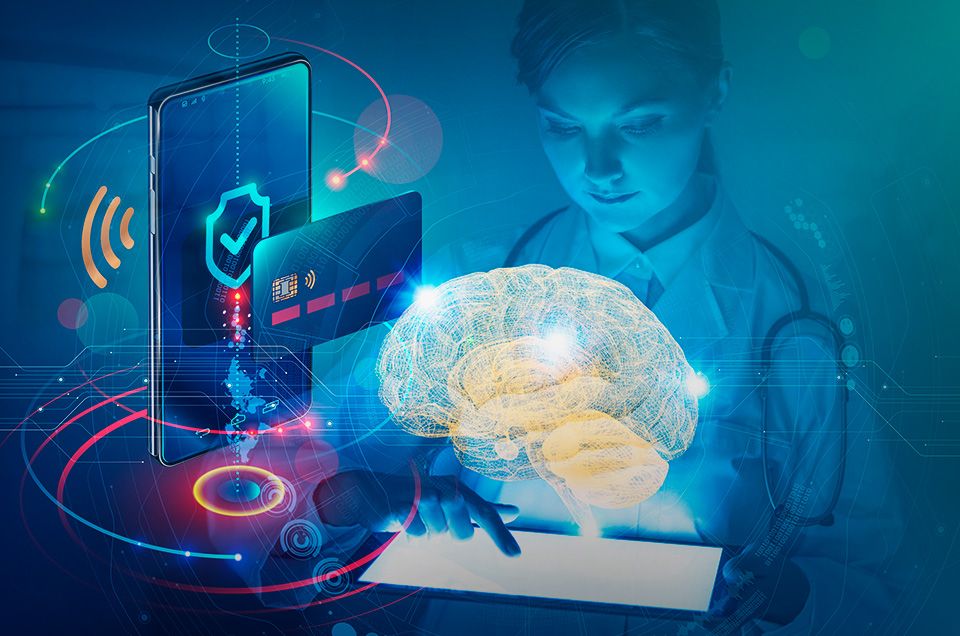Last summer our team attended the Microsoft MVP Community’s annual Digital Transformation Conference (here in Kyiv). It was a fantastic experience to participate in workshops, presentations by key players in the industry, and to mingle with colleagues.
It was an experience that provided deep insights as to how Ukrainian developers are helping businesses around the world transform their infrastructure to accommodate technologies like Artificial Intelligence (AI) and data science.
Events like these let us know where the industry is heading, what technical challenges lie ahead, and give us the necessary tools to tackle the complexities associated with building “the next big thing.”
Most of the AI-powered digital products built in the country were made specifically for healthcare. This is good news for the industry because global healthcare spending continues to increase dramatically and is projected to reach $10.059 trillion by 2022.
However, according to Becker’s Healthcare, AI tools are expected to save the healthcare sector as much as $52 billion by 2021.

1. What Are Ukrainian Developers Working On?
Developers around the country are helping companies around the world achieve their goals by building mobile apps, web apps, device and native, bots and agents, and analytics apps. They’re also heavily engaged in background process and automation protocols.
Ukrainian software engineers are also making waves in Natural Language Processing (NLP) activities like the following:
- Categorization
- Content analysis
- Key phrases extraction
- Named entity recognition
- Part-of-speech
- Sentiment analysis
- Summarization
According to Dr. Oleksandr Krakovetskyi, Ph.D., CEO of Chatty and DevRain, CTO in DonorUA, (AI Lead in Inphiz, Microsoft Regional Director, and Microsoft AI MVP), smart recruitment and management technologies are now able to connect blood donors, patients, blood donation centers, and businesses, efficiently.
If we take DonorUA, for example, Ukraine’s first automated system for the recruitment of blood donors, you can see how AI can be leveraged for success. In fact, DonorUA was able to connect over 3,000 patients with over 25,000 donors in the country.
Before smart algorithms, this process took several days to complete. AI in this scenario was able to dramatically cut it down to a matter of hours.
The AI-powered DonorUA was able to accurately predict if an individual would donate blood based on the following characteristics:
- Recency (or the number of months since the last donation)
- Frequency (or the total number of donations)
- Monetary (or the total blood donated for cash)
- Time (or the number of months since the first donation)
While Ukrainian developers and egnineers are certainly building innovative AI products for the healthcare segment, it hasn’t been a smooth ride.

2. What Are the Challenges Related to AI in Healthcare?
Whether it’s in healthcare or any other industry, data will be generated from multiple sources. All these different types of inputs can become quite confusing, quickly.
According to Yulia Sereda, Ph.D., researcher and lecturer of Kyiv School of Economics, the acronyms used in the industry can create some problems. This is quite a common issue that can make data integration a challenge.
For example, you can set yourself up for errors and inaccurate predictions if you use the same acronym for different things:
ALL = Acute Lymphoblastic Leukemia
ALL = Shorthand for allergy
Other problems that can lead to the failure of AI in healthcare are as follows:
- Biased data
- Obscured logic
- Risk of data manipulation
However, when you understand these limitations and challenges, they can be overcome. So in the long run, we can be sure to have AI assistants enhancing the care provided by medical professionals across the planet.
Which technology-focused conferences did you attend this year? How was your experience? Share your thoughts in the Comments section below.






